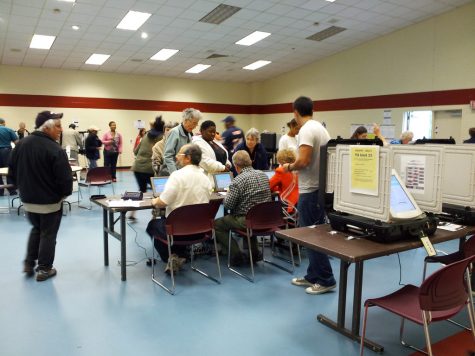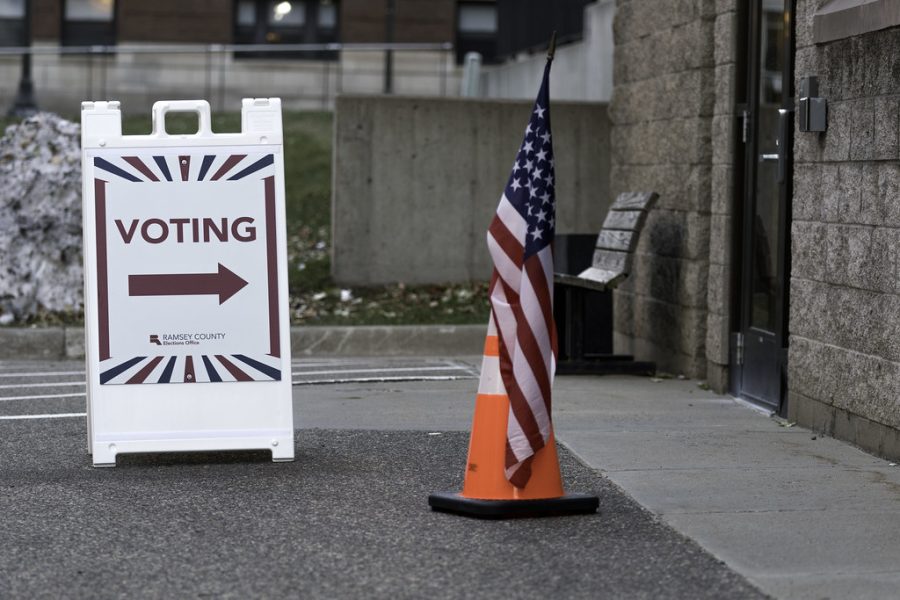What should students know about the midterms?
Mr. Wylie breaks down this year’s election
Voting comes to a close for this year’s midterm election on Nov. 8.
November 16, 2022
On Nov. 8, many students enjoyed an impromptu day off from classes to destress before the race to the Thanksgiving break finish line. Meanwhile, millions of registered voters lined up across the nation to cast their votes for the midterm elections.
“Your voting influence on midterms are significantly higher than on presidential elections,” AP Government teacher River Wylie said. “The smaller the election, the more influence you have on it.”
Texas experienced candidate races on many different levels. From district to county, to state – there were dozens of positions voted on in Austin. For LISD, that was both Props A and B. Both proposals were devoted to funneling money out of the district into other districts with less funds based on current property taxes in order to meet state laws on education spending. Prop A relied on the amount of student attendance and Prop B on the tax rate based on property value in the district. Both were passed by LISD voters on election day.
“The district itself actually had fairly good information on what those did,” Wylie said. “It’s called a Robin Hood program to make more money for districts with lower property values.”
Voter demographics typically favor the senior generation in congressional legislature with their focus, typically, being social security funds and welfare policies on their ballots.
“If you’re ever sitting there wondering, ‘Why does grandma get all the benefits? Why does grandma get social security and Medicare and all of these things? Why do they get discounts at Arby’s, while we don’t?’” Wylie said. “It’s because they vote. So, politicians care about them.”

Despite the chokehold the retired community has on the midterm results, it doesn’t mean new voters don’t have any power. The youngest voting generation, Gen Z, had a stronger hand in this election than at any other time in the past.
“Gen Z had the best turn out of a young generation that we’ve seen in a long time, about a 37 percent turn out.” Wylie said. “Still low, but much better than they’ve done in the past. And, I’ve been the same generation as all of our students. I’m also Gen Z.”
When students turn 18, the civil window of democracy opens; and many politicians see that as a chance to set constituents in a voting direction. To prepare to vote, being informed is crucial to making an informed voting decision, and more importantly – being registered. Voter registration is easy. It requires only one form of identification.
“If you’re someone who has a driver’s license, it’s very easy, so that’s the way that I recommend most people go through the process,” Wylie said. “Texas does require a voter ID. So, you need to bring in a government issued photo ID. So, essentially, bring your driver’s license wherever you’re going.”
While it may seem like students’ generation live in a politically polarizing and overwhelming time, it’s important to breathe and take a look at how utilizing democracy really matters.
“Check the Congressional Research Service,” Wylie said. “They tend to be a little less partisan, but, really, you have to understand so much about what policy does to be able to interpret whether it’s good or not.”
One tense and closely followed race has been the gubernatorial race in Texas. Beto O’Rourke experienced his third loss as a Texas Democrat front runner – once in 2018 when he ran for Ted Cruz’s long held Republican seat in the Senate, when he ran for president in 2020, and now his run for governor.
“We’ve seen Beto lose three elections that he’s running now. So, I think, he faces some challenges as a Democratic firebrand in the South,” Wylie said. “That’s definitely a difficult campaign to run.”
Wylie says this is partially due to a political efficiency issue where voters think their vote doesn’t matter, effectively bombing midterm turnout year after year.
“It can be difficult to see in Austin, where Austin tends to be a kind of liberal stronghold. But much of the state’s conservative, and a good majority of the people probably are,” Wylie said. “The Democratic turnout machine is just not very good. They’re not very good at turning up in Texas.”
After a [stressful for many, calming for some] Tuesday, it can be difficult to see the effect of voting in an era of political online wars and hatred. Refocusing on defining one’s core values can help more effectively in making a decision.
“I would point at how easy it is to find echo chambers in the news media today,” Wylie said. “The internet makes everything really loud. It makes it seem like things are a lot worse than they might actually be.”










Barack H. Obama II • Nov 16, 2022 at 12:48 pm
Wonderful article!